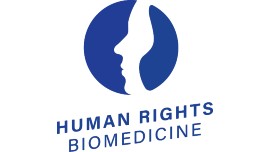The seminar took place in the framework of the preparation of the first HELP* course focusing on Human Rights in Biomedicine. It aimed in particular at discussing an outline of this course with those directly concerned taking into account training needs of legal and health professionals of Russia. That was be also an opportunity to learn more about the HELP programme and its methodology.
The course, finalized towards the end of 2017, was addressed to both legal professionals (judges, lawyers and prosecutors) and medical and other health-care professionals. These professional groups were selected because of their responsibility for the implementation of Human Rights in Biomedicine. The course aims at raising awareness and developing competencies as well as procedural and practical skills allowing legal and medical professionals to put into practice the acquired knowledge in concrete situations.
The outline of the course presented and discussed at the seminar was developed by Professor Jean-René Binet, professor at the faculty of law of the Rennes University, Director of the Doctoral School SHOS group of international experts. In March 2017 this outline was discussed by international group experts, including Dr Elena V. Parmon, Director of the Institute of medical education at the Ministry of Health of the Russian Federation and Dr Stanislav A. Bushev, Deputy Dean for academic affairs at the Philosophical Faculty of Moscow State University.
Prof. Binet, Dr Parmon and Dr Bushev together with other experts participated in this seminar, which also benefited from the participation of Ms Lyalya A. Gabbasova, Adviser to the Minister of Health of the Russian Federation, Laurence Lwoff, Head of the Bioethics Unit if the Council of Europe, Ms Vasilisa O. Neshataeva, HELP focal point in Russia, Ms Anastasiya N. Shadarova HELP programme coordinator in Russia.
*The course was developed and implemented in close cooperation between the Council of Europe Bioethics Unit and European Program on Human Rights Education (HELP), following the well-established HELP-methodology.





